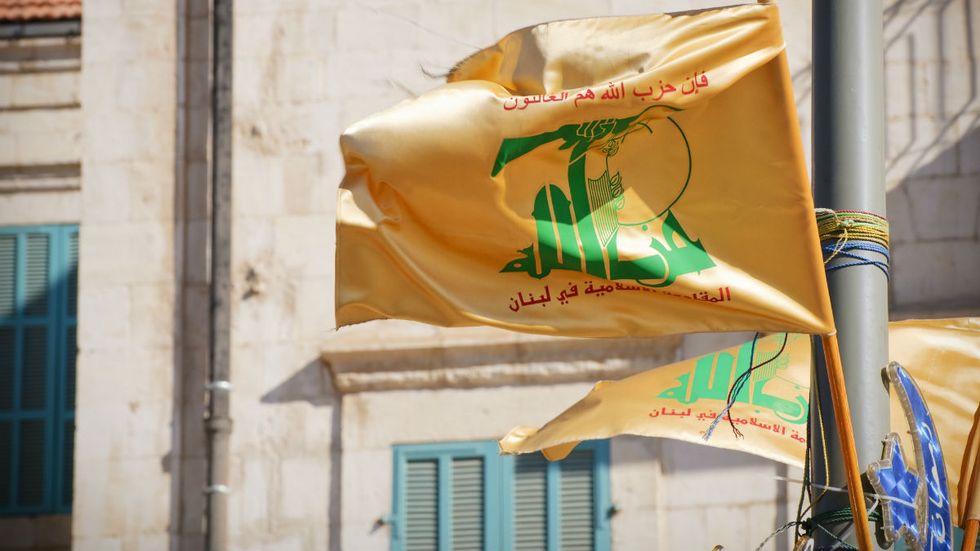
© 2024 Blaze Media LLC. All rights reserved.
The New York Times made waves on Christmas after the “paper of record” decided to publish a piece that trumpeted the supposed good deeds of the Iran-backed terrorist group Hezbollah.
In the piece “Christmas in Lebanon: ‘Jesus isn’t only for the Christians,’” Timesreporters Vivian Yee and Hwaida Saad paint a sympathetic picture of the U.S.-designated Foreign Terrorist Organization.
Writing on Christmas in Lebanon, they report: “Even Hezbollah, the Shiite political movement and militia that the United States has branded a terrorist organization, has helped ring in the season.”
In previous years, it imported a Santa to Beirut’s southern suburbs to distribute gifts. On Saturday, Hezbollah representatives were on hand for the Iranian Christmas concert, an event also featuring handicrafts by Iranian artists, but the organization skipped Santa this year because of financial constraints.These demonstrations of Christmas spirit seem intended, analysts said, to demonstrate Hezbollah’s inclusivity as a major political and military force in Lebanese society and to highlight its political alliances with Christian parties.
This won’t come as much of a surprise to those who have read the Times’ continuous glowing coverage of Hezbollah’s sponsor, the Islamic Republic of Iran. The paper’s Tehran-based reporter is essentially a stenographer for the regime. And until recently, the Timeswas making millions selling exclusive tours to Iran.
Putting that massive conflict of interest aside for the moment, here’s why the Timeswas wrong to depict Hezbollah in a friendly fashion. While it is indeed true that Hezbollah seeks to engage Christians (and Sunni Muslims) in Lebanon, the piece fails to include the necessary and critical context about Hezbollah’s tactical approach to ruling Beirut.
Hezbollah is responsible for some of the most horrific terrorist attacks in recent decades. The group played a major role in the 1983 Marine barracks bombing in Beirut, which killed 241 U.S. Marines. A year later, Hezbollah committed a suicide car bombing at the U.S. embassy annex in Beirut, killing 24 people. Hezbollah was also involved in a 1994 bombing that killed 85 people at Jewish community center in Buenos Aires, Argentina. In the 21st century and into 2018, Hezbollah has dedicated most of its military efforts to preparing for conflict with Israel and sending troops into Syria to help the Assad regime retain its grip over the country.
Hezbollah’s staying power is not an accident or merely good luck. Unlike many jihadi groups (such as ISIS and Al Qaeda) that encourage immediate and constant murder, mayhem, and civilian attacks, Hezbollah has shown wisdom and prudence in implementing a longer-term strategy to achieve its tactical goals.
Domestically, for the past 30-plus years, Hezbollah has succeeding in usurping power in Lebanon to point where the terror group has become the ultimate authority in the country. Comparable to the Muslim Brotherhood in its political approach, Hezbollah has achieved political success by demonstrating soft power measures to remain in the good graces of its constituents and neighbors — such as importing Santa into Beirut in an effort to win over Lebanese Christians.
The Times piece unfortunately says nothing of Hezbollah’s global terrorist or drug and human trafficking networks. Hezbollah is not just a terrorist group, a guerilla militant outfit, and a political power. The Iranian regime’s agents for mayhem also maintain one of the most sophisticated criminal enterprises in the world, which is detailed in Matthew Levitt’s seminal work, “Hezbollah: The Global Footprint of Lebanon’s Party of God,” and more recently in Josh Meyer’s bombshell Politico piece on Project Cassandra.
Hezbollah is more successful than ever because of its advanced statecraft and a multifaceted approach to its pursuits. Yet from its founding to current day, Hezbollah’s end goals remain exactly the same. Hezbollah is commanded to destroy Israel (which Hezbollah, Iran, and most jihadi organizations view as an extension of the United States) and continue to carve out more territory for the Shiite revolutionary regime in Tehran. The New York Times appears to have fallen prey to Hezbollah’s soft power strategy, to the detriment of those who seek a brighter and freer future for the Middle East and the world at large.
#mc_embed_signup{background:#fff; clear:left; font:14px; }
/* Add your own MailChimp form style overrides in your site stylesheet or in this style block.
We recommend moving this block and the preceding CSS link to the HEAD of your HTML file. */
Want to leave a tip?
We answer to you. Help keep our content free of advertisers and big tech censorship by leaving a tip today.
Want to join the conversation?
Already a subscriber?
more stories
Sign up for the Blaze newsletter
By signing up, you agree to our Privacy Policy and Terms of Use, and agree to receive content that may sometimes include advertisements. You may opt out at any time.
© 2024 Blaze Media LLC. All rights reserved.
Get the stories that matter most delivered directly to your inbox.
By signing up, you agree to our Privacy Policy and Terms of Use, and agree to receive content that may sometimes include advertisements. You may opt out at any time.


